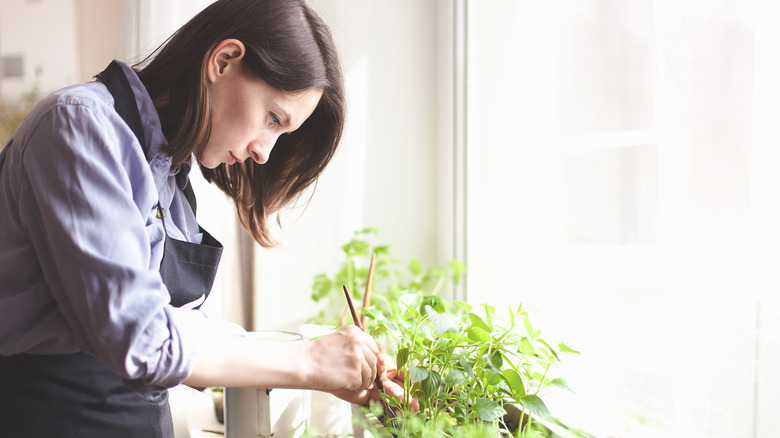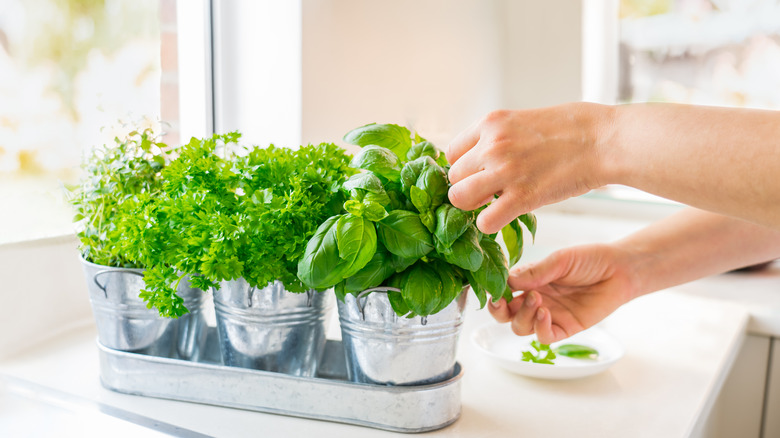Here's What You Should Know Before Growing Herbs Inside
Adding fresh herbs to your food can make you feel like a fancy chef because of the lovely, fresh flavor it brings to your dishes (and most don't have a ton of calories, which is an added plus). And having herbs right in the kitchen is super handy, and perfect for apartment dwellers or anyone without a yard for a big garden. But there are some things you need to consider before you take the plunge and grow herbs inside, because newbies can make mistakes.
You'll need to have a good source of light, as many herbs need six to eight hours of sunlight a day (via Stoney Creek Farm). If you've got a sunny window, you're set, and if it's southern facing, you'll be getting the most sunlight hours. Be aware of how close the herbs' leaves are to the window itself, since the glass may get too hot in summer and too cold in the winter for your plant's happiness (via Stoney Creek Farm). If you don't have a sunny window, you can invest in grow lights (via Gardener's Supply Company).
You can start from seed or, for the quickest results at a higher price, buy seedlings from a greenhouse. Make sure to transfer the seedlings into a larger pot with more soil to allow the roots to spread and the plant to grow (via Homestead and Chill). You'll also need to pay attention to how big your herbs get — if roots start poking out from the bottom of the pot, your plant needs to be transplanted into a larger pot (from EatingWell).
Make sure your herbs get the right amount of water
Basil, chives, dill, cilantro, rosemary, sage, mint, chervil — all of these herbs can be grown successfully indoors (via Gardener's Supply Company). Take some time to do some research on what each plant likes in terms of watering. If you have them in separate pots, you'll be able to best regulate watering, as some herbs want more water than others. For herbs like basil and chives that need more water, keep the soil slightly damp. For Mediterranean herbs, let the soil dry out a bit between watering (from Oregon Live).
Make sure that you have drainage for your plants – you'll need to set your pots on a tray, and if you want to use something like a mason jar, put a layer of pebbles in the bottom for excess water so the roots won't rot (via EatingWell). If you use a heater or an air conditioner, it will make the air dryer, and your plants need some humidity to thrive — most plants don't love humidity below 40% (via Garden Myths).
When it's time to harvest your hard-earned bounty, don't take it all at once — take no more than a quarter of the plant at a time to ensure that the plant stays healthy and keeps growing (via EatingWell). So with a little bit of care and love, your herbs can thrive indoors and you can enjoy fresh flavors year round.

